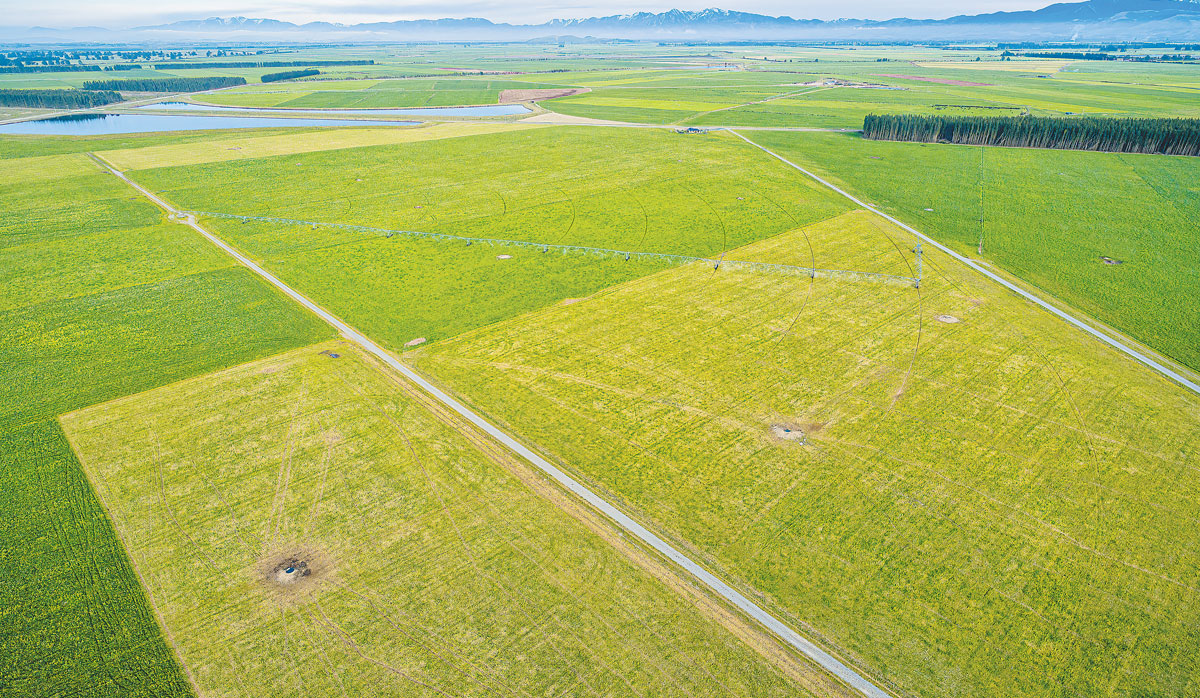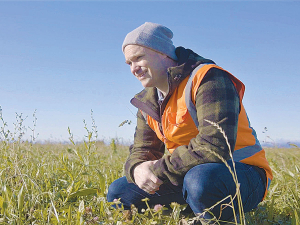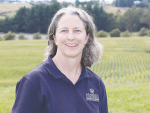The trial will compare two adjacent dairy farms, one using conventional farming systems and the other regenerative or alternative practises, on Ngāi Tahu Farming's Whenua Hou development, just north of the Waimakariri River.
Named Te Whenua Hou Te Whenua Whitiora (The New Land, The New Horizon) the project was announced in August as a partnership between Ngāi Tahu Farming, Ngāi Tūāhuriri (the Ngāi Tahu rūnanga of the area), and the Government through the Ministry for Primary Industries' Sustainable Food and Fibre Futures fund.
A second ceremony in late October announced eight external organisations which will help monitor and manage the trial, gathering data and assessing the science.
Ngāi Tahu Farming general manager, Will Burrett, told Rural News the trial would compare a 330ha conventional farm carrying 1,040 cows and the 286ha alternative farm with 940.
He says the farms are starting from an equal base. They were the same age, both developed eight years ago, in a very consistent way, on land that was previously the Eyrewell Forest.
Burrett told Rural News that they were still working with ECan on necessary consents for the regenerative/alternative farm but would have it fully operational by June 2023.
He says 75% of the alternative farm's pasture would be planted in diversity species by Christmas and the remaining 25% post-Christmas. This farm will feature a high intensity blend of up to 19 species of grasses, legumes and herbs.
"Some of those are annual and some perennial, so I'm so not expecting all of them to last," Burrett explains. "But there will be a base, a core composition of the perennials, that we hope will last. One of the things we will monitoring through the trial is their persistance in sward."
Secondly, the farm would use a longer round length and leave a higher residual, on the hypothesis that it will lead to a denser root structure and sequester more carbon dioxide.
"We're running the hypothesis that it will enable us to build out soil faster than our current conventional system."
Thirdly, it will use no synthetic nitrogen, but instead use organic sources of nitrogen such as fish-based fertiliser.
Burrett says the trial will test the practicality of that, hoping to show how it can scale up not just to Ngāi Tahu's eight dairy farms but others across the South Island.
He says the proposed 2025 greenhouse gas emission charges, freshwater farm plans, community expectations and international consumer preferences are all challenging conventional farming systems.
"We look forward to assessing the scientific and financial results we achieve through Te Whenua Hou Te Whenua Whitiora to help us inform a viable alternative farming system that enhances soil health, has a lower environmental footprint, reduces water use, promotes kaimahi wellbeing and is financially profitable, all while complementing mātauranga Māori."
Ngāi Tahu Holdings chief executive Craig Ellison says alternative farming systems have not been researched at this scale or depth in New Zealand before.
"The pressures on Aotearoa New Zealand's pastoral farming are mounting and being part of the solution is the only way to progress into the future."
Te Ngāi Tūāhuriri Rūnanga chairperson Tania Wati says mana whenua are pleased the project will focus on restoring and building soil health.
"We will have an expectation to see more farming operations adapting regenerative processes to protect our whenua for future generations. It is time for change," she told Rural News.
Burrett adds that while Ngāi Tahu Farming had been challenged by its shareholders to improve and protect land and water for future generations, those concerns are the same facing the sector generally.
Like most farmers, he agrees that there are already regenerative aspects to conventional systems, such as rotational grazing diverse species and low tillage. But adds that the challenge is to push it further while maintaining productivity and profitability.
A governance group will regularly assess progress through the trial and there will be regular published updates.
Burrett is also looking forward to collaborating with others, such as Align Farms, who he says are also doing good work in improving the environmental footprint of farming.
Managing The Science
Ngāi Tahu Farming has signed agreements with some heavyweight research organisations to monitor the regenerative trial and provide the data.
It hopes this will validate regenerative and sustainable practices for all New Zealand farmers.
The $11.58 million programme will be supported by $8 million of governmnet funding through MPI's Sustainable Food and Fibre Futures fund, which will be provided directly to the organisation conducting the research.
They will look into all aspects of farming, including the impacts of regenerative agriculture practices on farm workers.
DairyNZ will monitor farm workers through a range of metrics including worker wellbeing, engagement, sleep and fatigue, and task diversity and productivity. It will monitor farm management and analyse pasture and animal productivity and economic performance. It will also model greenhouse gas emissions and nitrate leaching at farm scale
 |
|---|
|
Aerial image of Te Whenua Hou Te Whenua Whitiora trial. Photo Credit: JB Walter.
|
Manaaki Whenua - Landcare Research will look at water-use efficiency, measure root zone nitrate leaching, changes in soil carbon and nitrogen stocks, and nitrous oxide and methane emissions. Manaaki Whenua will also monitor plant species composition over time.
AgResearch will provide benchmarking and evaluation of the different farming approaches, across areas such as soil health, animal health, and the quality of meat and milk produced. The AgriBusiness Group will assess assurance standards and consumer trends.
Regenerative farming advocacy and support company Soil Connection will provide regenerative systems advice.




















